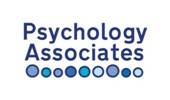Psychological therapy, psychotherapy, talking therapy, psychoanalysis, cognitive behaviour therapy, counselling, there are lots of different words used to describe interventions which aim to help people with difficulties with how they are feeling psychologically or emotionally. So what do all these different terms mean and how do you work out which kind of intervention might work for you?
All these talking treatments share the understanding that the experiences you have in your life affect you and potentially those around you. Some focus on how your early or childhood experiences shape the way you see yourself, others and the world, and shape the ways you learn to cope with stress or upset, while others focus on how difficulties at any point in your life may cause you distress or disruption.
Counselling is a term often used in everyday language to describe any intervention where an individual talks to a professional about something that is troubling them. There are many different types of counselling. Counsellors are trained to listen to people with empathy and counselling is usually recommended to help an individual talk through their feelings about a specific, and usually recent, event, such as a bereavement, the end of a relationship, or being made redundant.
In comparison psychological therapy, also referred to as psychotherapy or therapy, has the aim of helping people not just to speak about events but to do so in a way that enables them to make changes in their behaviours, relationships, or feelings about themselves and the world.
Psychoanalysis is the oldest of the psychological therapies and was developed by Freud in the early part of the twentieth century, although a number of different schools of psychoanalysis have developed in the intervening years. One of the most important tenets of psychoanalysis is that we are affected not only by experiences in the external world, but also by experiences in our internal worlds - in the unconscious. Because of this, psychoanalysis, and the psychoanalytic and psychodynamic therapies that derive from it, aim to help individuals explore their internal worlds (or make elements of the unconscious conscious), in order that the effects can be understood and modified. Psychoanalysis and the psychoanalytic psychotherapies tend to be long term and intensive therapies, meaning people may have sessions twice or more a week, and over many months or years.
Most other therapies, draw on psychoanalysis to some extent and share the emphasis on exploring experience so that its effects can be understood and modified, but they may not share the emphasis on the unconscious. They may focus instead on the here-and-now of people’s experience in order to try to reduce the amount of therapy someone may need in order to make change. Perhaps the most well known of these therapies is cognitive behavioural therapy or CBT, which aims to help people to understand how their thoughts, feelings and behaviours connect to each other, in both helpful and unhelpful ways.
There are also a number of integrative therapies for example Cognitive Analytic Therapy which combines elements of cognitive behavioural and psychoanalytic models; and Dialectical Behaviour Therapy which combines elements of cognitive behavioural therapy and techniques of Buddhist meditation.
To make matters even more confusing some therapies are recommended for specific difficulties. This occurs particularly within the NHS, which is a huge organisation and has to attempt to make access to different treatments fair nationwide. There are some good reasons for this, but it can also be overly simplistic, and can lead to people being categorised in ways that they might find unhelpful. You may have heard of the Improving Access to Psychological Therapies or IAPT programme. This is a national government funded programme which aims to increase the amount of psychological therapy available on the NHS. This is a fantastic idea but unfortunately at the moment the funding is specifically directed towards people who fit into the categories of having mild to moderate depression and anxiety. In most parts of the country IAPT provides guided self help (which is when a worker meets a person, or speaks to them on the telephone and suggests either computer programmes or books that they can use to help them identify helpful or unhelpful patterns of thinking or behaviour), and one-to-one short term CBT.
Other therapies may be available via the NHS in your area – ask your GP or check your local NHS Trust website to find out more.
In order to see what therapies are available via Psychology Associates go to www.psychologyassociates.org.uk


